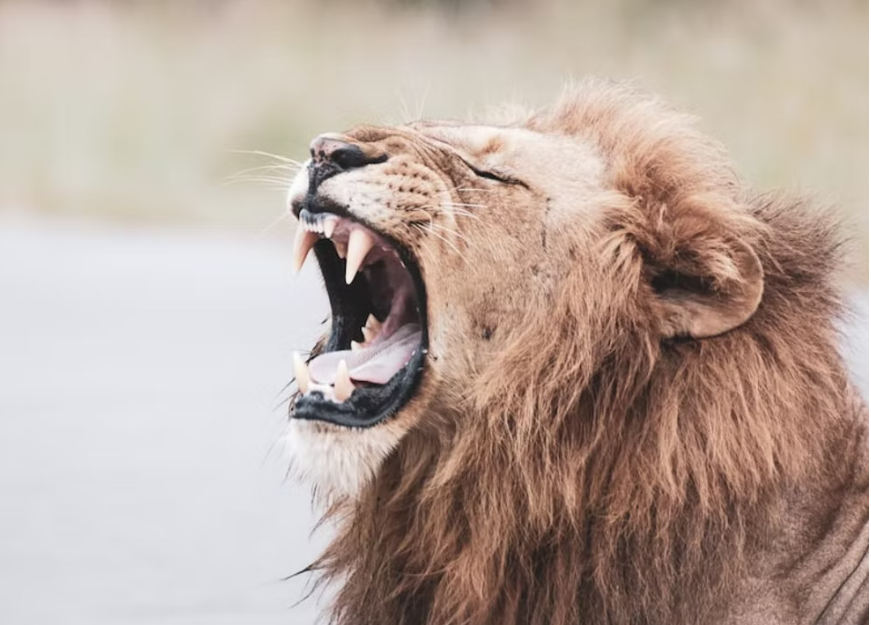Conservation and development must work together
African Wildlife Foundation head Kaddu Sebunya explains why he believes humanity’s future relies on it finding a way to coexist with wildlife

Your support helps us to tell the story
From reproductive rights to climate change to Big Tech, The Independent is on the ground when the story is developing. Whether it's investigating the financials of Elon Musk's pro-Trump PAC or producing our latest documentary, 'The A Word', which shines a light on the American women fighting for reproductive rights, we know how important it is to parse out the facts from the messaging.
At such a critical moment in US history, we need reporters on the ground. Your donation allows us to keep sending journalists to speak to both sides of the story.
The Independent is trusted by Americans across the entire political spectrum. And unlike many other quality news outlets, we choose not to lock Americans out of our reporting and analysis with paywalls. We believe quality journalism should be available to everyone, paid for by those who can afford it.
Your support makes all the difference.In Kenya, we are familiar with the disagreement between the conservation groups and the government over the road and railway construction through the Nairobi National Park. In Tanzania, the highway passing through the Serengeti-Mara ecosystem.
In Ethiopia, the uproar about Lake Turkana drying up because of the massive hydropower dam. These arguments create the impression that conservation and development are mutually exclusive. That governments and conservationists are permanently at loggerheads.
Yet this is, and should, not be the case. I have no doubt in my mind that these disputes and confrontations are not inevitable. We can build our cities and we can keep wildlife and wildlands secure. The two can go hand in hand. We don’t have to sacrifice one, on behalf of the other.
But that is easily said… Humanity’s remarkable ability to self-destruct is one of the most inexplicable yet enduring paradoxes of life. We are perhaps the only species endowed with the capacity to best understand nature yet are also the worst at managing it.
The world’s population reached 8 billion in November 2022. Seventeen per cent, or 1.4 billion of those people live in Africa, while the vast majority of 5 billion, or 60% are in Asia. But the world’s human population account for just 0.01% of all living things. And because of the 0.01%, currently of all the mammals on earth, 96% are livestock and humans, only 4% are wild mammals. Because of us - chickens and other poultry account for 70 percent of birds. It is reported that since the dawn of civilisation, humanity has caused the loss of 83% of all wild animals and nearly half of plants.
Half of the Earth’s animals have been lost in the last 50 years – my lifetime. Ironically, this period has also been attended by some of the most significant innovations in human history. Yet curiously humans are still incapable of protecting our existence on earth. The global tree count has fallen by 46% since the beginning of human civilization. We are still losing 100 trees per minute. People cut down 15 billion trees each year.
Sounds like the sky is falling …
Most recently, biodiversity and livelihoods, conservation and poverty reduction have become part of everyday vocabulary, mainstreamed to inform both national and global agenda. Last year alone, we have had 4 global climate meetings.Never have campaigns to end global poverty and conserve wildlife and wildlands been done more loudly. Sadly, instances of success remain scant. It is, therefore, arguable then that our collective approach to environmental conservation and development has been problematic.
Part of the problem is that in a globalized world, the relationship between nation states has been reduced to trade. With trade relations superseding everything else. We have witnessed the emergence of powerful trade blocs and a greater play of economic growth interests in state affairs.
We have seen normalisation of the supposedly inherent tension between conservation practices and economic growth. But growth and development are not the same things. When something grows it gets bigger, when something develops it becomes different. Not all growth is development. Not all growth leads to development.
While economic growth and ecosystem protection might seem incompatible, they are in fact inseparable. Poverty may beget environmental degradation, but so does wealth if we do not ensure our consumption and production activities are carried out in a sustainable way.
The good news is that there is a growing success in NGOs, governments, as well as public/private partnerships that indicates that the silos and divisions that once separated the conservation and development communities are breaking down.
Advances in conservation biology, agricultural ecology, plant breeding, ecosystem monitoring, and computer-based modelling are revolutionizing the ability to understand and manipulate wildlife –habitat-human interactions, to the benefit of both people and the rest of nature. In much the same way, the perceived role of business is changing. It is increasingly recognized that there are both business risks and opportunities associated with mismanagement of biodiversity. An interesting shift is beginning to be observed, where companies are no longer writing off biodiversity as a community or philanthropy issue but are starting to present it as a core business issue relevant to both risk and opportunity.
However for governments, corporates and civil societies to be successful, it will require more holistic approaches. We must think of the institutional, ecological, and developmental conditions which can make this possible. Similarly, as many have argued, we must understand that the links between biodiversity and livelihoods and between conservation and poverty reduction are both dynamic and local.
We need to quickly start the process of marrying our human aspiration to nature’s abilities to accommodate and absorb our ambitions if humans are to survive.
Kaddu Sebunya is the CEO of the African Wildlife Foundation
Join our commenting forum
Join thought-provoking conversations, follow other Independent readers and see their replies
Comments